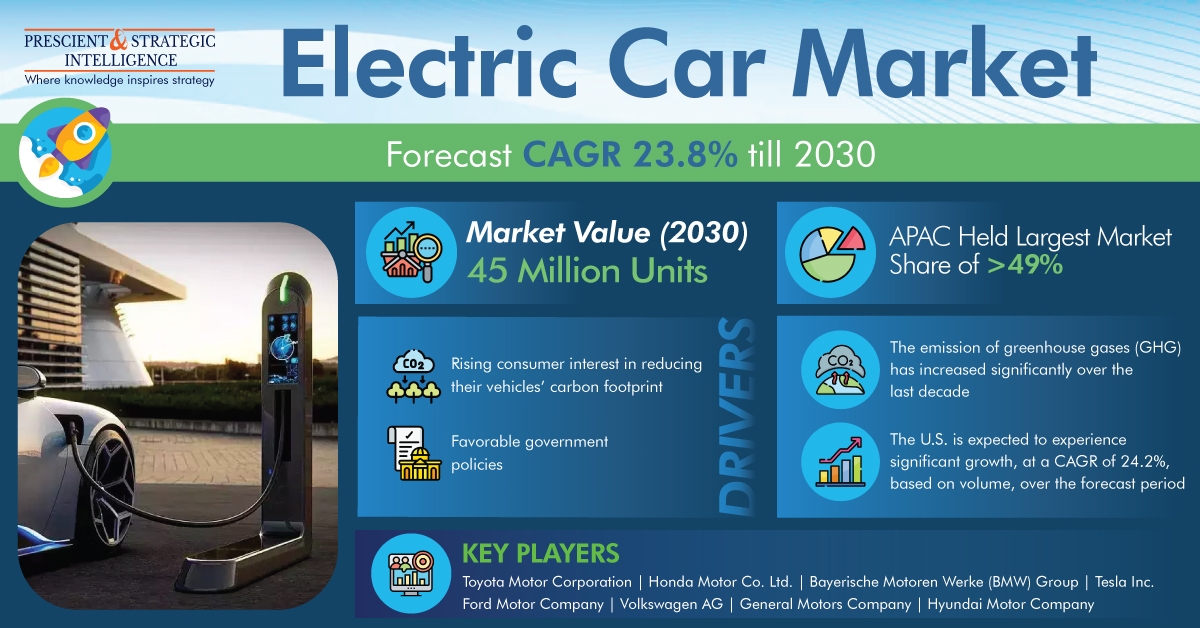The electric car market sales were 8.1 million units in 2022, and it will reach 45 million units by 2030, advancing at a substantial rate of 23.8% during the forecast period as per a report by P&S Intelligence.
The main reasons boosting the demand for electric cars are the improving battery technology, favorable government policies, and the rising interest of the customers to reduce carbon footprint.
China is projected to be the largest buyer of electric vehicles in the years to come. This is credited to the increasing government support and subsidies for buying electric vehicles, increasing ownership cost of ICE alternatives, and rising concern about the environment.
Additionally, Europe electric car market is expected to have the highest CAGR, of approximately 26%, during the forecast period, mainly because of the increasing adoption of electric cars in the U.K., Germany, and Norway.
Greenhouse gas emissions has increased considerably in the last decade. To achieve a cleaner environment by limiting the emissions, numerous actions have been taken by the governments across the world.
For instance, according to the European Environment Agency, in recent years the European Union has met its three primary targets. The 2030 target to reduce 55% of greenhouse emissions can be achieved by putting in extra efforts and by implementing new policies.
Based on volume, the U.S. is projected to experience significant growth, at a rate of 24.2%, due to the increasing support for environment-friendly automotive technologies by the government.
The main initiatives for electric vehicles in the region include the ZEV program in California and other states, CAFE standards, and the U.S. federal tax credit of USD 7,500 on their purchase.
The demand for electric vehicles will grow at a high rate because of the entry of new vehicle models. Various automobile companies have already introduced their upcoming EV models and improvements in battery technology. For example, Volkswagen has introduced its plans of launching 30 models by 2025.
China is leading the industry, with a share of approximately 90% in 2022. This is ascribed to the government support and reimbursement policies, and high- manufacturing of EVs.
Battery holds a considerable share in the total cost of an electric vehicle. The prices of automotive lithium-ion battery packs have significantly reduced in recent years.
With the rapid advancements in manufacturing technology and anode, cathode, and electrolyte materials, their prices will decrease even further in the years to come, and more opportunities will be there for the players to improve their battery capacity and range.
Due to the increasing concern to reduce vehicles’ carbon footprint, and the improvement in battery technologies, the electric car industry will grow considerably in the coming years.


